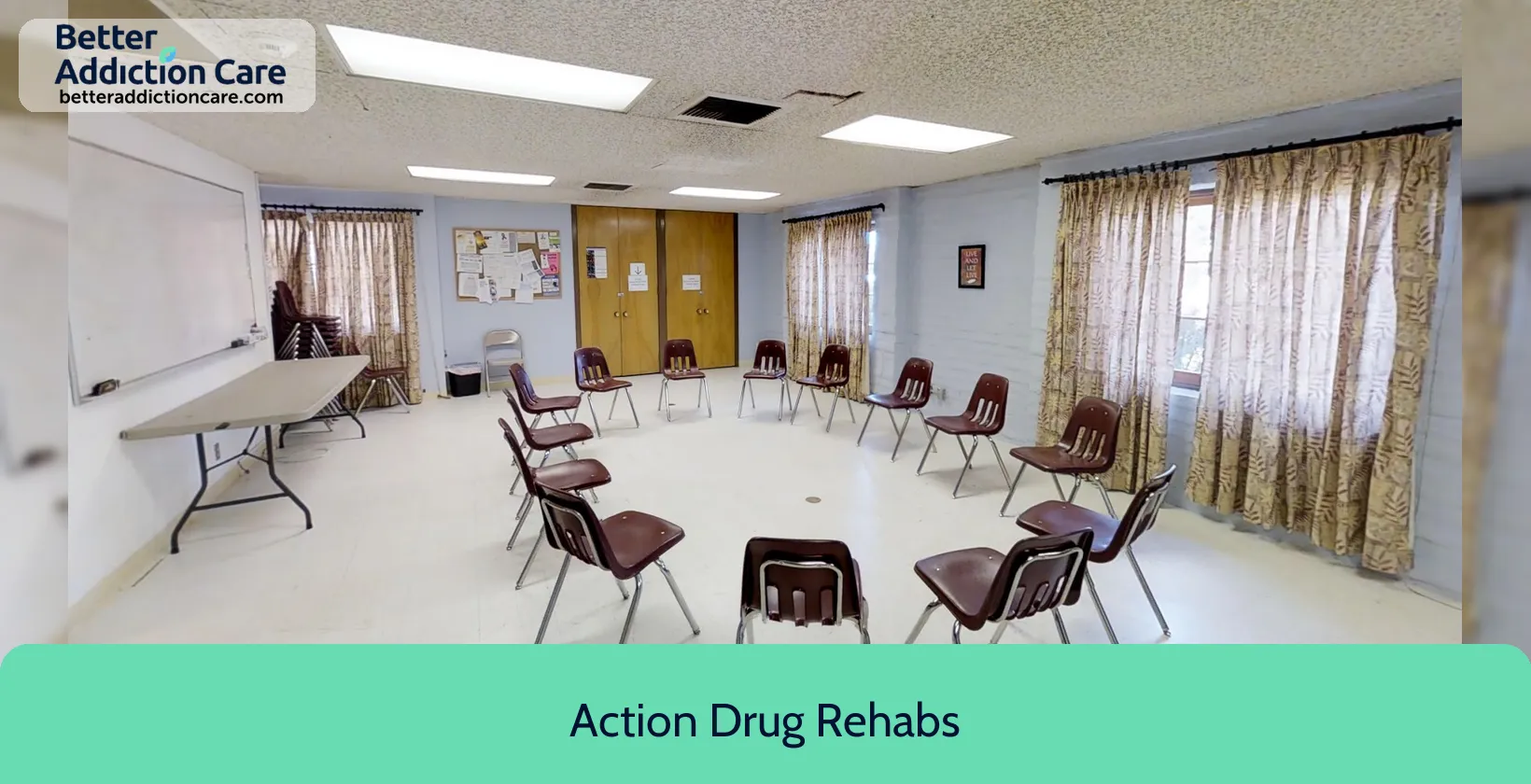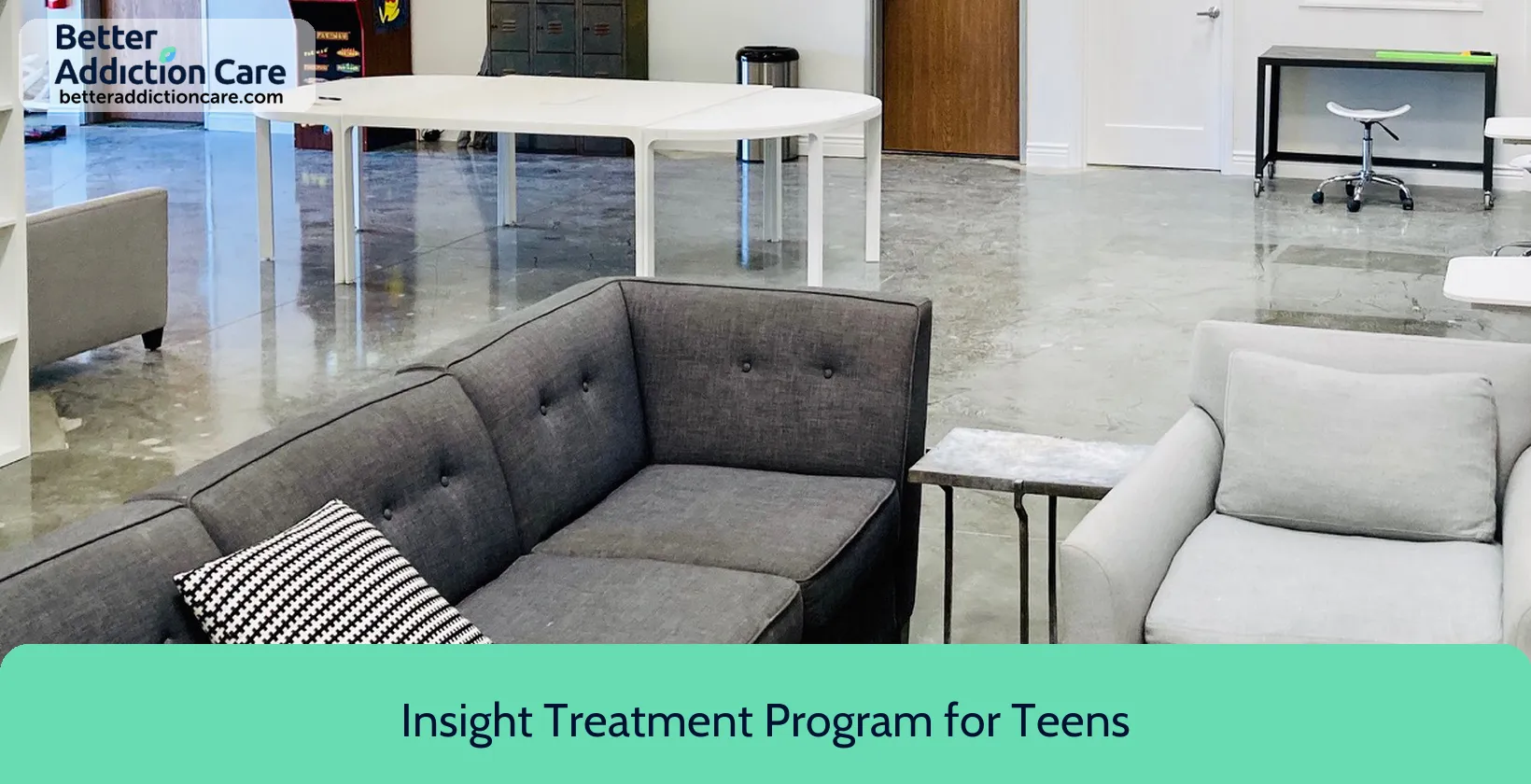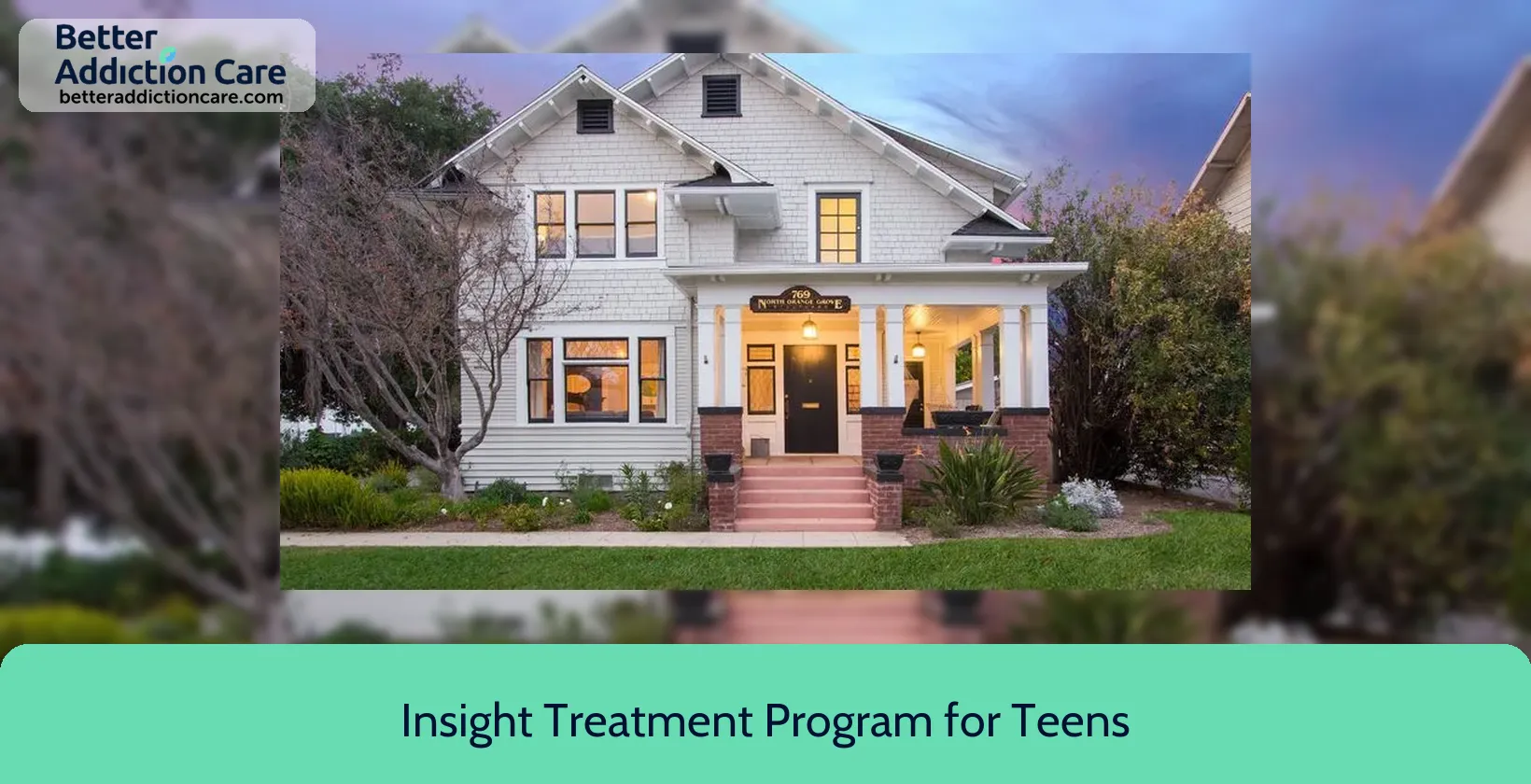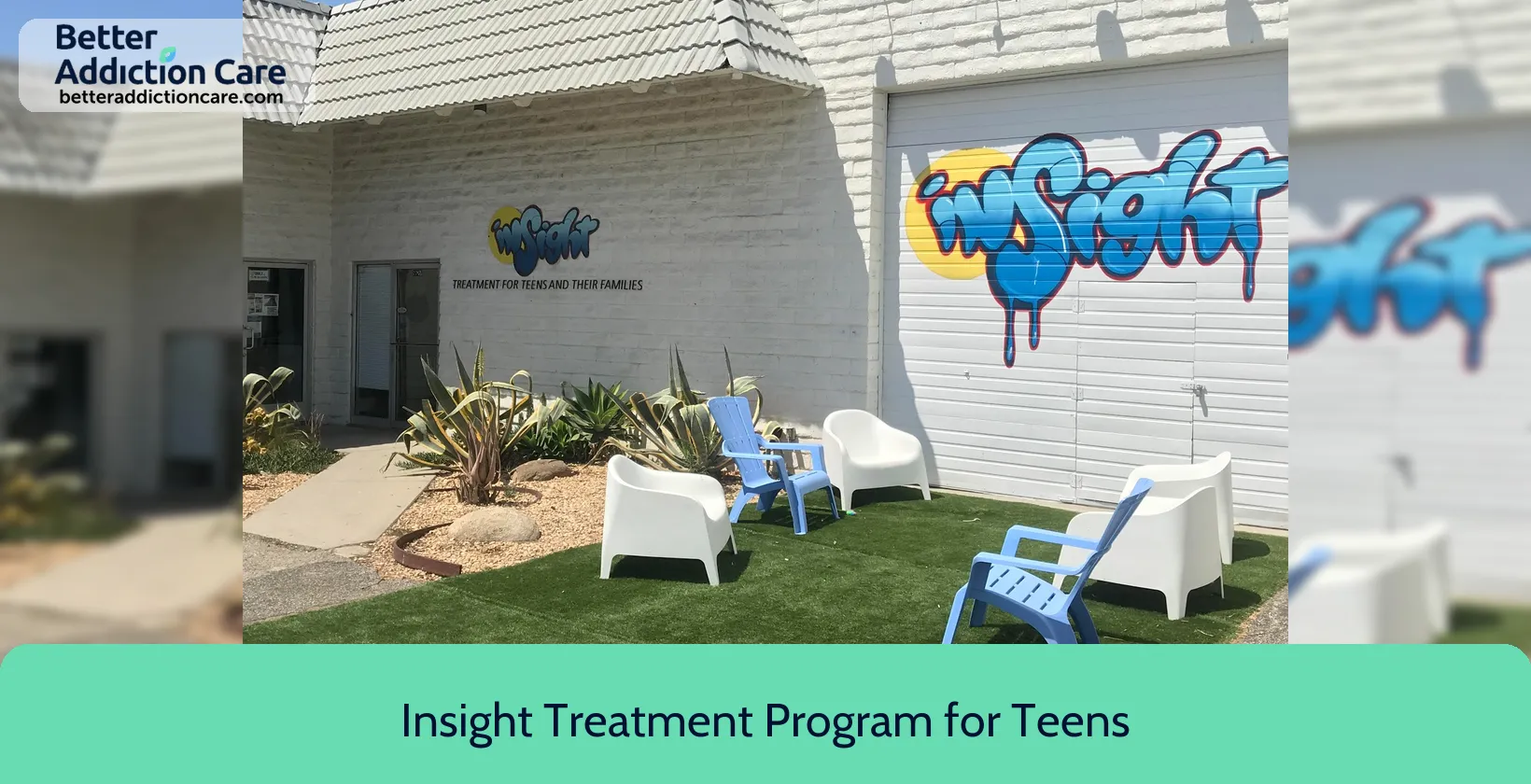Insight Treatment Program for Teens and Families - Santa Clarita
Overview
Insight Treatment Program for Teens and Families - Santa Clarita is an accredited substance abuse treatment center that provides outpatient detoxification, for men and women from 18+ years of age. As part of their special programs, Insight Treatment Program for Teens and Families - Santa Clarita treats persons with eating disorders and clients who have experienced trauma. To help patients achieve sobriety, Insight Treatment Program for Teens and Families - Santa Clarita provides intake assessments. Afterward, patients receive eating disorder treatment, family counseling, and group counseling during treatment. Insight Treatment Program for Teens and Families - Santa Clarita is located in Santa Clarita, California, providing treatment for people in Los Angeles County, accepting cash or self-payment and private health insurance.
Insight Treatment Program for Teens and Families - Santa Clarita at a Glance
Payment Options
- Cash or self-payment
- Private health insurance
Assessments
- Comprehensive mental health assessment
- Comprehensive substance use assessment
Age Groups
- Young adults
- Children/adolescents
- Adolescents
Operation
- Private for-profit organization
Highlights About Insight Treatment Program for Teens and Families - Santa Clarita
6.62/10
With an overall rating of 6.62/10, this facility has following balanced range of services. Alcohol Rehabilitation: 8.00/10, Drug Rehab and Detox: 6.00/10, Insurance and Payments: 6.00/10, Treatment Options: 6.49/10.-
Alcohol Rehabilitation 8.00
-
Treatment Options 6.49
-
Drug Rehab and Detox 6.00
-
Insurance and Payments 6.00
Accreditations
Commission on Accreditation of Rehabilitation Facilities (CARF):

CARF accreditation is a prestigious recognition granted to rehabilitation and human service organizations. It signifies that an organization meets high-quality standards, having undergone a rigorous evaluation process. CARF accreditation boosts an organization's credibility and ensures top-notch care for individuals with disabilities, injuries, or healthcare needs.
Treatment At Insight Treatment Program for Teens and Families - Santa Clarita
Treatment Conditions
- Mental health treatment
- Alcoholism
- Opioid Addiction
- Substance use treatment
- Co-occurring Disorders
Care Levels
- Intensive outpatient treatment
- Detoxification
- Aftercare
- Outpatient
Treatment Modalities
- Eating Disorder Treatment
- Family counseling
- Group counseling
- Individual psychotherapy
- Trauma-related counseling
Ancillary Services
Special Programs
- Persons with eating disorders
- Clients who have experienced trauma

Additional Locations
Get Help Now
Common Questions About Insight Treatment Program for Teens and Families - Santa Clarita
Contact Information
Other Facilities in Santa Clarita

6.65

6.56

7.20

7.16
DISCLAIMER: The facility name, logo and brand are the property and registered trademarks of Valley Recovery Center, and are being used for identification and informational purposes only. Use of these names, logos and brands shall not imply endorsement. BetterAddictionCare.com is not affiliated with or sponsored by Valley Recovery Center.



